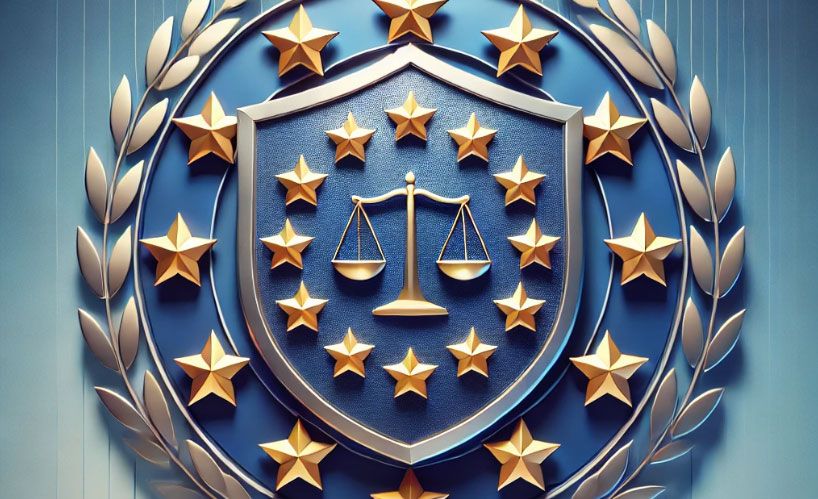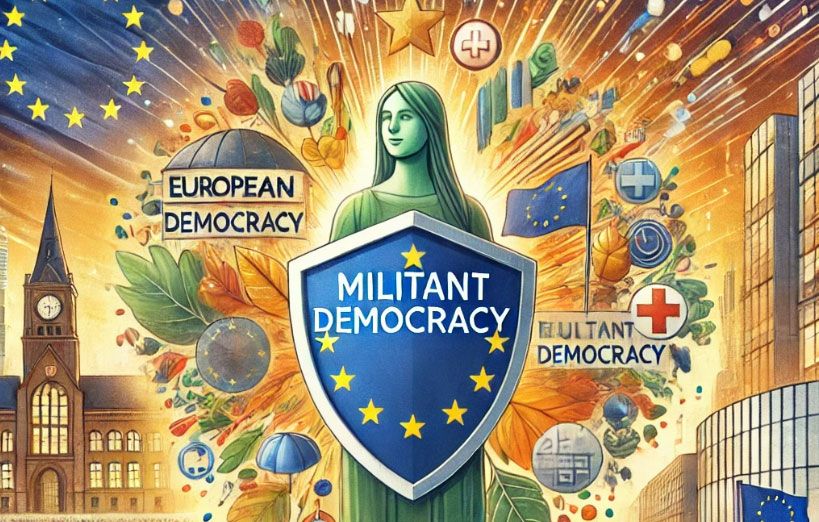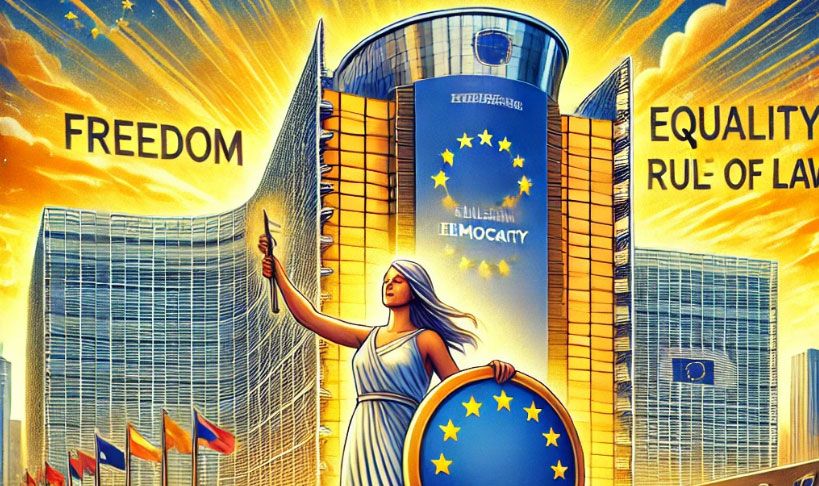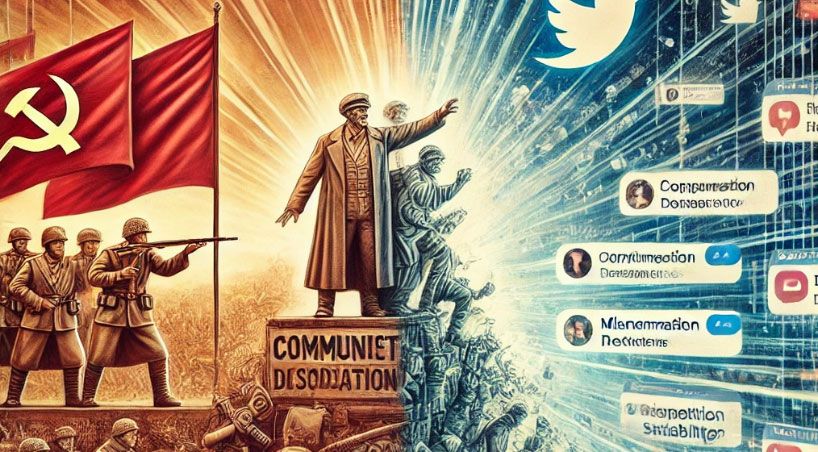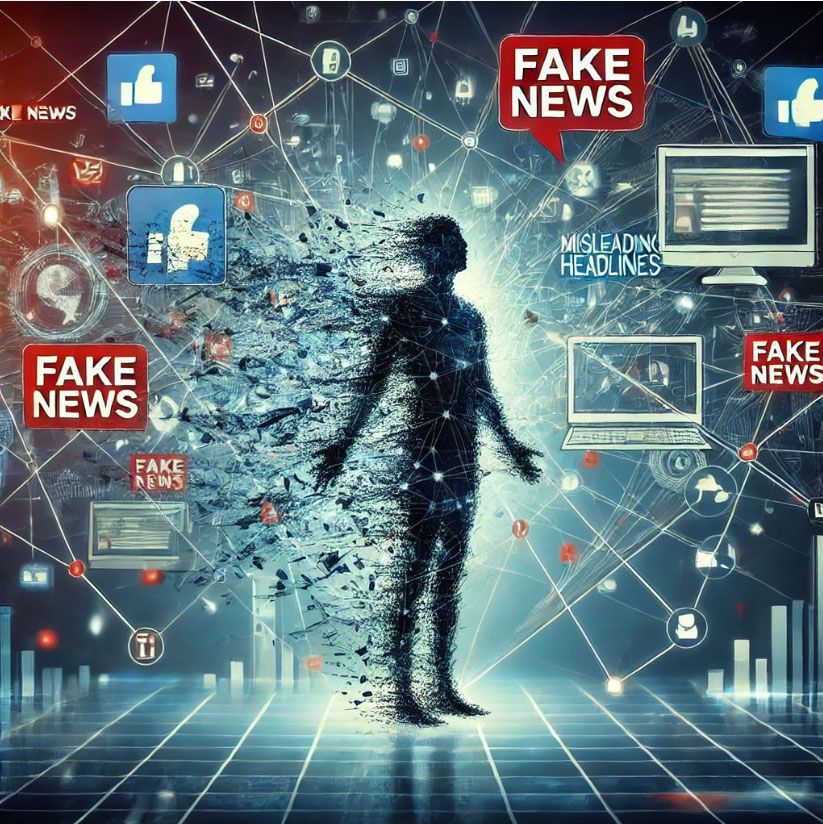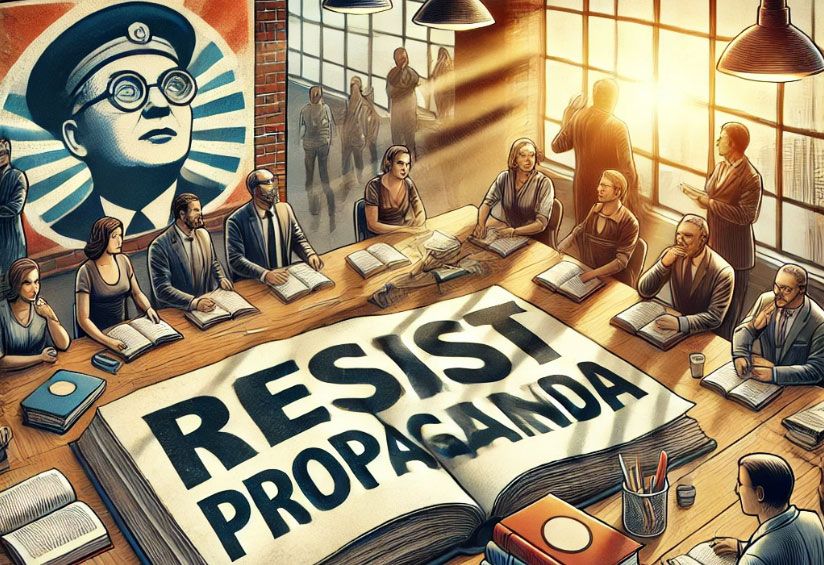Lessons from Communism and Totalitarianism
I know this personally because I lived through the Romanian communist dystopia. Propaganda wasn’t just a tool—it was the air we breathed. It corroded every aspect of society, reducing the value of human life to a cog in the ideological machine.
I witnessed how constant surveillance, forced conformity, and the suppression of individuality eroded people’s self-worth. Dreams were crushed, and survival often depended on silence and compliance.
The system became not only cruel but also absurd, demanding that people accept and profess obvious lies and falsehoods.
You were forced to clap—endlessly and enthusiastically—to show how happy you were, how much you loved the Party, and how devoted you were to the dear leader.
I still remember the absurdity of school assemblies where we stood for hours, applauding speeches filled with hollow praise and empty slogans.
Our hands ached, but we dared not stop, knowing that any sign of reluctance could lead to suspicion or worse. The emotional toll was profound—mocking our intelligence and dignity while eroding any sense of authenticity or personal worth.
Living in a society where propaganda dictates reality creates a deep sense of helplessness and alienation, as if your very existence is diminished to serve a faceless, unyielding system.
Communism, like all dictatorships, was a failed world. It was not a society anyone willingly participated in but rather a collective nightmare enforced at gunpoint. Trust dissolved, and relationships became transactional, often stained by fear and suspicion.
The pressure to conform at every level meant that individuality and authentic human connection were sacrificed to the needs of the state.
The very essence of being human—trusting, dreaming, and striving for something better—was ground down to nothing under the weight of the regime.
The Insidious Nature of Oppression
In dystopian regimes, the cruelty often extends beyond the overt into the insidious, manifesting in covert operations, psychological manipulation, and systemic dehumanization.
Take the example of the Romanian Securitate’s alleged use of “Radu,” a radiological weapon revealed by Ion Mihai Pacepa, a high-ranking defector.
According to Pacepa, this weapon used radioactive materials supplied by the KGB to discreetly expose critics and dissenters to lethal radiation.
Victims would develop cancer and die within months, their deaths appearing natural and leaving no direct trace of the regime’s hand.
This method epitomized the perverse creativity of an oppressive regime bent on silencing its enemies while avoiding overt public scrutiny.
While the tools of suppression were rudimentary compared to today’s technology, the intent remains strikingly similar: to manipulate reality and control dissent under a facade of normalcy.
In a world where “Radu” existed, what value could the human being truly hold?
When life can be extinguished so discreetly, with death framed as natural and unavoidable, the worth of an individual becomes terrifyingly conditional.
Trust evaporates, as even the relationships closest to you might become tainted by fear of betrayal or surveillance. Community spirit falters, replaced by a desperate isolationism where the safest path is silence.
The existence of such tools of oppression doesn’t just end lives—it erodes the very fabric of humanity, reducing it to something fragile, expendable, and devoid of agency.
Modern Parallels: Disinformation in the Digital Age
These mechanisms have evolved into sophisticated tools of manipulation. AI algorithms curate content to reinforce biases, fake news campaigns spread polarizing narratives, and social media platforms amplify propaganda through targeted echo chambers.
These modern parallels highlight how authoritarian tendencies adapt to exploit the latest technologies, further blurring the line between truth and control.
Where Ceaușescu’s regime weaponized radiation to eliminate dissent, contemporary powers exploit misinformation and surveillance to suppress resistance and maintain control.
The medium has changed, but the intent remains: to undermine autonomy and silence opposition.
But why does this matter now? Because we’re seeing the warning signs all over again. Instead of party apparatchiks controlling society, we see multinational corporations and oligarchs leveraging technology, wealth, and influence to dictate the terms of our lives.
The propaganda hasn’t gone away—it’s just evolved.
Social media algorithms and monopolized media networks manufacture consent by creating echo chambers that polarize and stifle dissent, amplifying disinformation to manipulate public opinion.
Access to resources like water, clean energy, and healthcare is increasingly shaped by corporate profit rather than human need.
For example, water privatization in parts of the world has already made a basic human necessity a luxury for many.
In the United States, life-saving medications like insulin remain prohibitively expensive for countless people, forcing them to make impossible choices.
These modern oligarchs are also adept at weaponizing division. They pit communities against one another, turning genuine grievances into tribalism, while they quietly consolidate power.
It’s not so different from the way totalitarian regimes stoked paranoia and suppressed solidarity among the populace.
The lesson from history is clear: unchecked concentration of power—whether in the hands of a state, a party, or an oligarchy—leads to dehumanization, inequality, and the erosion of individual freedoms.
To resist the slide into an oligarchic dystopia, we must first recognize the signs and learn from the past.
What We Can Do: Steps Toward Change
It’s easy to feel powerless in the face of these systemic forces. But even small acts of resistance can make a difference:
- Question authority: Don’t accept information at face value; seek out diverse perspectives to understand the full picture.
- Support independent journalism: Back media outlets that prioritize investigative reporting and hold power accountable.
- Demand accountability: Engage in civic actions, such as contacting representatives or supporting campaigns for corporate transparency.
- Advocate for change: Push for policies that protect public resources, strengthen democratic institutions, and prioritize human welfare over profit.
By taking these steps, individuals can collectively challenge the structures that threaten our freedoms and equality.
Disinformation thrives in the shadows, leveraging covert strategies and modern refinements like AI-driven propaganda and psychological manipulation.
Like the pervasive narratives of historical authoritarian regimes, disinformation today exploits our vulnerabilities to polarize and control.
By openly discussing and ridiculing its mechanisms, we expose its absurdities, weaken its influence, and empower society to resist its grip.
Engaging in conversations about disinformation is critical. Discuss its impact with family, friends, and within your communities to create awareness and foster critical thinking.
When we collectively analyze and confront the tactics used to manipulate truth, we strengthen societal resilience against its divisive effects.
Recognizing disinformation in our own lives—fact-checking, identifying biased sources, and questioning too-good-to-be-true claims—is an act of resistance that each of us can take on.
The Power of Collective Action
Above all, remember that history has shown us the power of collective action.
Oppressive regimes and monopolistic systems have been toppled before, often by ordinary people refusing to accept the status quo.
Movements like the Civil Rights Movement in the United States or the Fridays for Future climate activism demonstrate the power of collective defiance.
More recently, initiatives like NAFO (North Atlantic Fellas Organization), a grassroots movement that uses humor and social media to counter Russian disinformation and support Ukraine, have shown how collective efforts can effectively challenge authoritarian narratives in the digital space.
Whether it’s through grassroots movements, courageous journalism, or small acts of defiance, change begins when individuals take a stand.
The value of human life, dignity, and freedom is immeasurable, and it thrives when communities come together to uphold these principles.
A world rooted in empathy, equity, and truth is possible if we are willing to fight for it.
Together, we can ensure a world where humanity prevails over greed, and the principles of dignity, freedom, and equity guide us forward.



